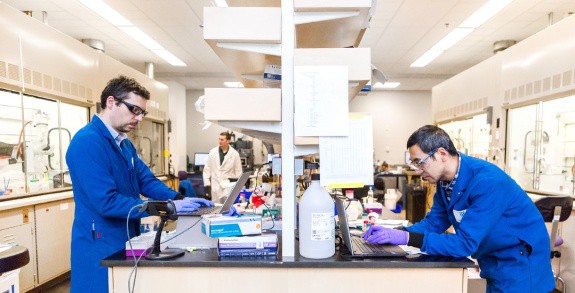Boston-based Laboratory-as-a-Service (LaaS) company SmartLabs is expanding internationally with a new biomedical innovation base in Hsinchu Biomedical Science Park in Taiwan. One of its first initiatives in the nation state is the Global Launch Program, a life sciences accelerator created in partnership with Taiwan’s Ministry of Science and Technology.
Leveraging its existing ecosystem of investors, pharma and service companies, SmartLabs will accelerate fundraising and clinical development for promising Taiwanese startups, including two companies focused on the detection of novel coronavirus.
“Taiwan has abundant research and development resources and maintains one of the world's most comprehensive healthcare systems, which makes it a natural location for our first investment in the Asian life science and biotech industry. Since our inception, SmartLabs has helped companies minimise administrative and logistical hurdles by providing turnkey laboratory space that allows them to focus on the work that matters, scientific discovery. This expertise uniquely positions us to advise and help connect Taiwan’s startups to businesses worldwide. By investing in promising Taiwanese startups, we can foster partnerships that help to commercialise products in the United States and around the globe,” said Seth Taylor, CBO and CFO of SmartLabs.
Taiwanese biomedical startups tap IoT
The Department of Academia-Industry Collaboration and Science Park Affairs will carefully select biomedical innovation teams to participate in the Global Launch Program. The program is open to any promising life sciences startup. SmartLabs has already identified two participants with technologies potentially suited for the detection of novel coronaviruses.
- Hawk Scientific’s qPCR nucleic acid detection technologies, such as the portable diagnostic suitcase and the handheld IoT reader with lateral flow strip tests, are designed for emerging pathogen outbreaks and animal diseases for on-site detection. At present, each machine can complete 300 nucleic acid tests in one hour. Both detection systems could apply in rapid COVID-19 virus screening and identification.
- Instant NanoBiosensors uses nano-fiber particles to develop nano-biosensors. Its state-of-the-art fiber optic particle plasmon resonance (FOPPR) technology offers instant and accurate results for a wide range of detection applications, including medical diagnostics and possible early detection of the virus SARS-CoV-2. Using Instant NanoBiosensors technology, diagnostic time has been drastically reduced from 3 hours to minutes.
Through its new Taiwan office, SmartLabs will assist both Hawk Scientific and Instant NanoBiosensors in navigating accelerated commercialisation processes and FDA testing in an attempt to mitigate current and future global epidemics.
Through the Global Launch Program, the startups will have access to training, mentorship and residency in SmartLabs’ leading, adaptable lab spaces. The three-month curriculum will include guidance on creating a business plan, engaging in fundraising and partnerships, developing intellectual property, and conducting product launches while navigating regulatory environments. Following the initial stages of learning and development, the teams will have access to SmartLabs' facilities and operations across Massachusetts, enabling companies to quickly scale and enter the international market.
In addition to the curriculum provided by SmartLabs, the company will also serve as a strategic partner for the startups. SmartLabs will help to drive global opportunities for the selected biotechs, providing:
- Access to SmartLabs' facilities and operations across Massachusetts, enabling companies to quickly scale and build a U.S. presence
- Counsel on recruiting and managing board of directors and management teams that drive strategic growth
“SmartLabs’ whole model is rooted in accelerating businesses and creating time savings. They are more than a typical incubator with lab space, their program allowed us to meaningfully accelerate our efforts and achieve key objectives in less time,” said Andrew Allen, the CEO of Gritstone Oncology.



